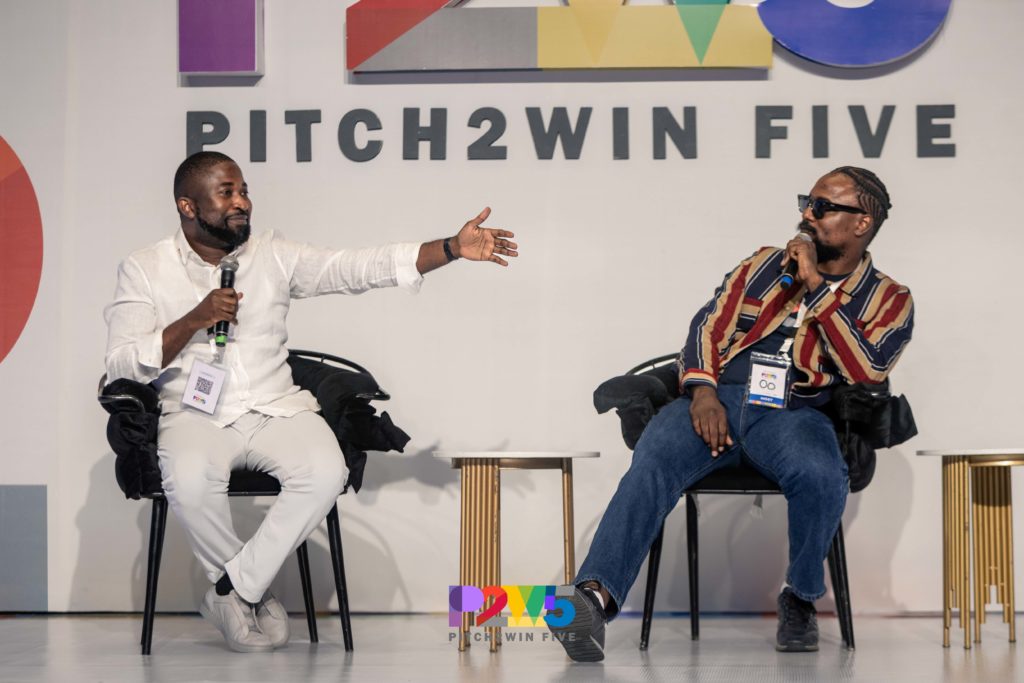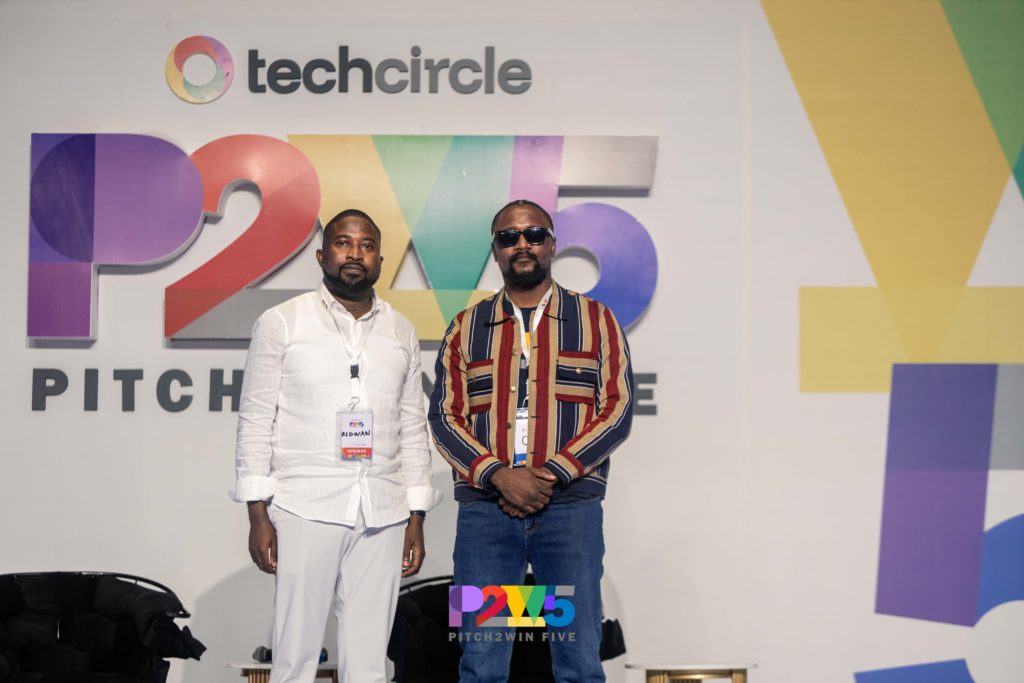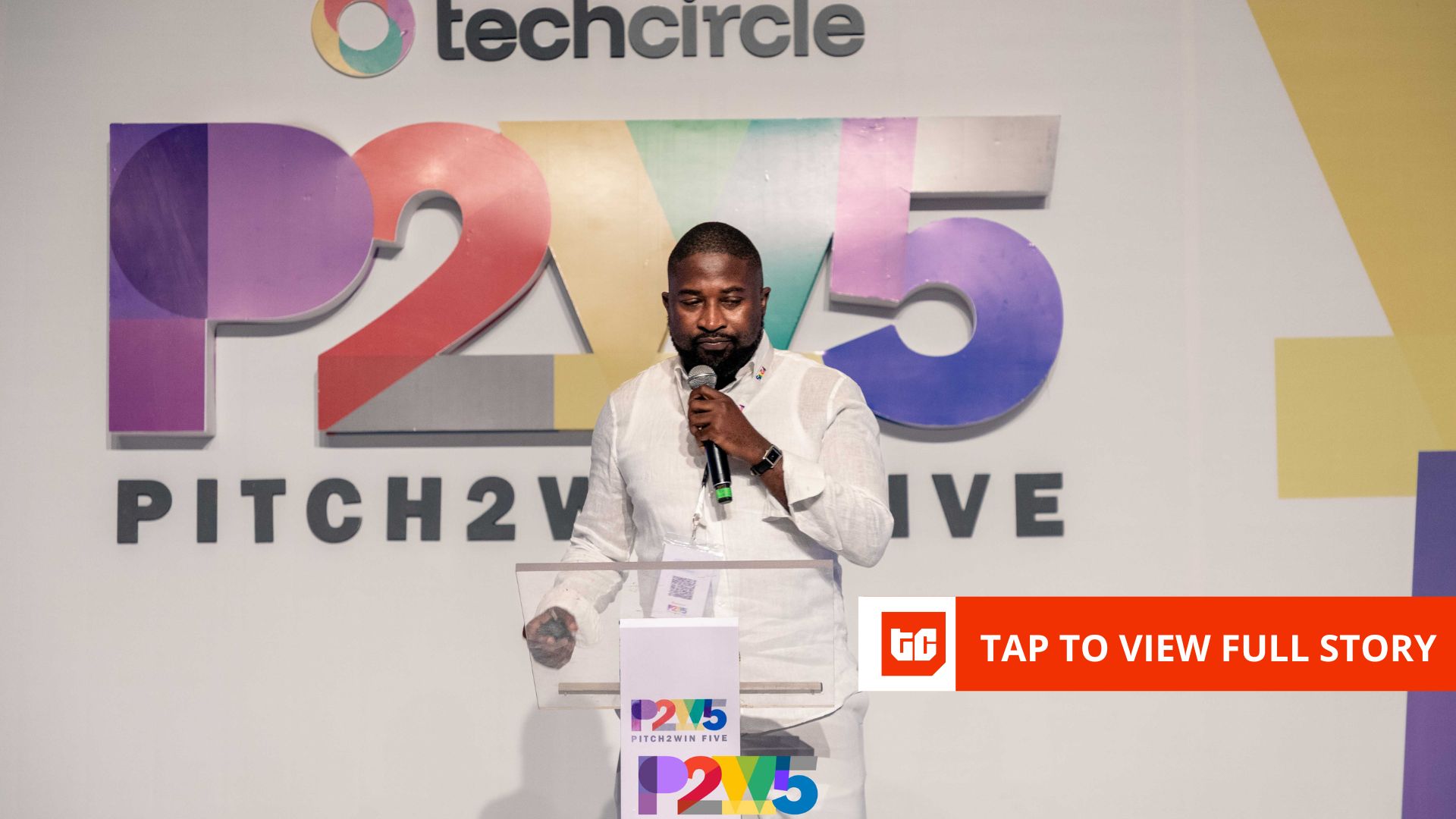At the fifth edition of Pitch2Win on July 30, a yearly event where aspiring entrepreneurs showcase their ideas and learn from industry experts, Ridwan Olalere, CEO of remittance startup LemFi, shared the riveting origin story of his startup.
Serving over 30 countries, Lemfi allows Africans in the diaspora to send money home. The global remittance market, valued at about $800 billion annually (with Africa accounting for roughly $100 billion), is rife with opportunity and complexity. LemFi’s success lies in navigating both.
Olalere’s journey to founding Lemfi wasn’t a straight line. A decade ago, he was a developer at Hotels.ng, a Nigerian booking platform. He then founded ForLoop, a developers’ community. He went on to work as a senior software engineer at Flutterwave, and later moved to OPay, where he was director of payment. Eventually, Olalere became Uber’s country manager in Nigeria before going on to found his startup.
In a candid, engaging keynote, Ridwan walked the audience through LemFi’s evolution from a pre-seed idea to a Series A success, revealing the scrappy journey of building a borderless banking platform for Africans in the diaspora.
Minutes later, Pitch2Win convener Oo Nwoye—who also wrote LemFi’s first pitch deck—joined him for a lively Q&A. If you missed the event, here’s a deep dive into Olalere’s story and the top ten takeaways from his speech.

The pre-seed: Embrace assumptions and start small
LemFi is currently a leading remittance app for the African diaspora. But the idea wasn’t born fully formed. “We kept evolving the entire idea,” Olalere admitted, recounting how in 2020 the concept shifted from stock trading, inspired by Robinhood’s hype, to digital banking, and he finally settled on building a remittance app for Africans in the diaspora.
The idea stemmed from his time at OPay, where he worked as payment director and launched an unsuccessful remittance product.
“We didn’t like the P&L of Nigerian banking startups,” he explained. At OPay, charging 20 naira per transaction yielded an average revenue per user (ARPU) of just $10–$15, while acquiring agents cost $20. “Your payback period was going to be the second year,” he said.
Remittances, with higher transaction values, promised better economics. But the pre-seed phase was chaotic. Ridwan and Nwoye, who wrote the first pitch deck, started with a blank slate and a lot of guesswork.
“We were trying to raise a $3 million valuation, $500,000, without any product,” Nwoye recalled.
Olalere pointed to the slide that claimed 170 million Africans were in the diaspora. “It’s a lie,” he laughed.
They also listed giants like Western Union and TransferWise as competitors, prompting one investor to scoff: “You’re in Lagos. You’re telling me we should give you $500,000 to beat these guys. Please don’t waste our time.”
Embrace imperfect circumstances
The app’s early design was equally rough. “If you’re not embarrassed about your design pre-seed or when you’re starting the company, then you’re not starting early enough,” Ridwan quipped. The colour palettes were unsophisticated, bugs abounded, and the app did just one thing: move money between Canada and Nigeria.
Olalere also pointed out that the choice to focus on Canada was more pragmatic than ideal. Only 100,000 Nigerians lived there, compared to over a million in the UK or US, but a Canadian licence was the easiest to obtain.
“Should we wait six months to get the UK license, which was a 50/50 chance, or start in Canada, where we had a license within that month?” Ridwan asked. Starting a team in too many places at once can set you up for failure. While you might be tempted to launch in several markets simultaneously and spend a lot on marketing, this often leads to high user churn. At this early stage, your service isn’t great, and you miss the opportunity to learn and build confidence by perfecting your product for a smaller, more focused market.
They chose the Nigeria-Canada corridor, a narrow scope that allowed LemFi to “build the muscle” for marketing, distribution, and debugging.
In the early days, they also made wrong assumptions about their burn rate. The deck’s 12-month runway was optimistic. It lasted six months. A projected 2% transaction fee led to losses, and Flutterwave’s 4.5% processing costs ate into margins.
The pre-seed deck, flaws and all, embodied Ridwan’s mantra: “The most important thing is just to start, no matter how small. Then you can figure out the rest later on.” Assumptions were okay, even necessary, as long as you kept moving.

Have savings
Years earlier, a mentor had given him a crucial piece of advice: have substantial savings before launching a startup. At the time, Ridwan had brushed it off. “I didn’t think it made sense,” he admitted.
In hindsight, it was a lifeline. In a country like Nigeria, where safety nets like health insurance are often thin, personal savings provided the freedom to take a leap of faith. This was never more evident than in 2020, when Ridwan made his biggest personal sacrifice, leaving his role at Uber just one month before a significant amount of his restricted stock units (RSUs) were set to vest.
There was a lot of money at stake. But for Olalere, the decision was simple. “I just felt too excited about the project,” he said. “This is it. This will work. We have to go all in.” He resigned, unwilling to be “dishonest with Uber” by juggling his startup with his corporate life.
His savings, from his time at Uber and OPay, became the startup’s initial lifeline. He recalls wiring £19,000 to consultants and engineers, using some of it for licenses, which showed investors a level of commitment crucial for attracting their attention.
“When you have savings, you have that to use to live your life while embarking on this very painful journey,” he reflected. It was this personal investment that signalled seriousness to investors and allowed LemFi to get off the ground.
The seed stage: Prove traction by mastering storytelling
The seed stage revealed progress and humility. The $300,000 annual revenue projected in the pre-seed deck proved elusive; Lemfi hit $23,000 monthly, a fraction of the goal. However, going from zero to $23,000 was a win because it demonstrated that Lemfi was no longer a pipe dream, but a business with real momentum.
By 2021, Lemonade Finance rebranded to LemFi and joined Y Combinator (YC), a turning point that sharpened its storytelling. The seed deck ditched the app’s clunky interface for data-driven storytelling. “This is storytelling,” Ridwan repeated. The seed deck ditched the app’s clunky interface for numbers: $23,000 in monthly revenue, licenses in Canada, the UK, and the US, and a 135% growth rate. The market data estimates were corrected to much more accurate figures, too.
Olalere credited YC for teaching him to frame metrics persuasively. This is important because when you’re raising your seed round, you want to show traction, and you want to emphasise the numbers.
YC partner, Michael Seibel, posed a question: “If you tell an investor you went from one customer to two, or you grew 100% week-on-week, which one do you think the investor prefers?” The answer was obvious. “It’s all about how you present it.”
The Series A: Scaling with sophistication
By the Series A round, Lemfi was unrecognisable. The deck was sleek, with a logo and a polished design. The Series A deck emphasised team sophistication. “In the first deck, it was just, ‘Do you have the right founders?’ Third deck—team,” Ridwan explained.
Investors committing $8–$15 million needed confidence in the team’s ability to manage growth. A standout hire was Rian Cochran, Ridwan’s former boss at OPay, who joined as a co-founder.
“[Cochran] used to be my boss,” Ridwan admitted. When Nwoye suggested a finance expert, Ridwan called Cochran. They had not been close as co-workers, so Cochran consulted his former CEO, Nuno Sitima, who vouched for Ridwan: “If there’s anybody in Africa…that was worth doing [a startup] with, then the only name in his mind was Ridwan.”
Cochran signed on, forgoing a salary for a year. “You’re always interviewing,” Ridwan reflected. “Wherever you are, you’re naturally interviewing in life.”
Beyond scaling the quality of the team, it also matters to Series A investors that the product has made significant traction since the seed raise. “You don’t want to go through pre-seed, seed, Series A with no progress, no traction, and be upset that no investor is giving you money or time. There has to be tremendous progress.”
Lemfi’s revenue had soared, likely crossing the $100,000–$200,000 monthly threshold typical for Series A rounds. The deck included metrics like compound monthly growth rate (CMGR) and annual recurring revenue (ARR)—terms Ridwan once found baffling. “I never knew what that meant,” he laughed. Even competitors evolved, with Revolut added to the list, despite its irrelevance. “That has no business with us,” he quipped.
The app also looked and felt better, supporting remittances to tens of countries, from the Philippines to Brazil. “We had Ghana, Kenya, Uganda, Tanzania,” he noted, a far cry from the Canada-Nigeria niche.
Create a playbook, but also be quick to adapt
This expansion was not accidental. Olalere actively sought lessons from Nigeria’s success, where Lemfi mastered customer acquisition costs (CAC) on Facebook and identified effective channels.
“Did Facebook work better than Instagram? Did Instagram work better than YouTube? Did YouTube work better than influencers?” he asked rhetorically.
Nigeria’s playbook—favouring influencers—was adapted for Ghana, but Kenya required a different approach: “Influencers don’t work as well as just free education there.”
These insights formed a scalable strategy. “You can write a small playbook and say you’re going to go after Ghana, but it doesn’t mean it will work,” he said. “But at least you have somewhere to start from and readjust.”
Control information as the stakes rise
As Lemfi scaled, the stakes intensified. Olalere became more guarded, a shift Nwoye noticed with a mix of amusement and respect.
“At the beginning, I was the one guy always receiving investment updates,” Nwoye said. “Then all of a sudden, it became more secretive. I learned of Series A from TechCrunch.”
Olallere’s response revealed the pressures of the remittance industry: The information about the amount of remittance you receive into a country is very sensitive, especially in emerging markets like Nigeria, Ghana, and Kenya, where regulators scrutinise remittance inflows, hunting for dollar inflows to bolster scarce reserves.
A misreported figure could shutter a business overnight, Ridwan warned. Lemfi tightened information access, holding data to a “high standard of who would get access.”
Competition added another layer of paranoia. In Africa’s tech scene, success breeds imitators. “If one person knows you’re doing well, three days from then, their friends start the same company,” Olalere said.
These copycats dilute investor value, as “the same guy that gives A money will give B money, will give C money.” By limiting information, Lemfi aimed to “get a head start, to scale fast, to build huge moats around your business.”
Lemfi’s growth is undeniable. “We’re bigger than every one of them except Sendwave,” Olalere said proudly.
He goes on to add that his vision extends beyond remittances. He’s “passionate about building inclusive financial ecosystems for the modern African,” a goal evident in Lemfi’s expansion into multicurrency accounts and new markets.
One overarching lesson on his roadmap is: just start, and the rest will follow.
Mark your calendars! Moonshot by TechCabal is back in Lagos on October 15–16! Join Africa’s top founders, creatives & tech leaders for 2 days of keynotes, mixers & future-forward ideas. Early bird tickets now 20% off—don’t snooze! moonshot.techcabal.com

